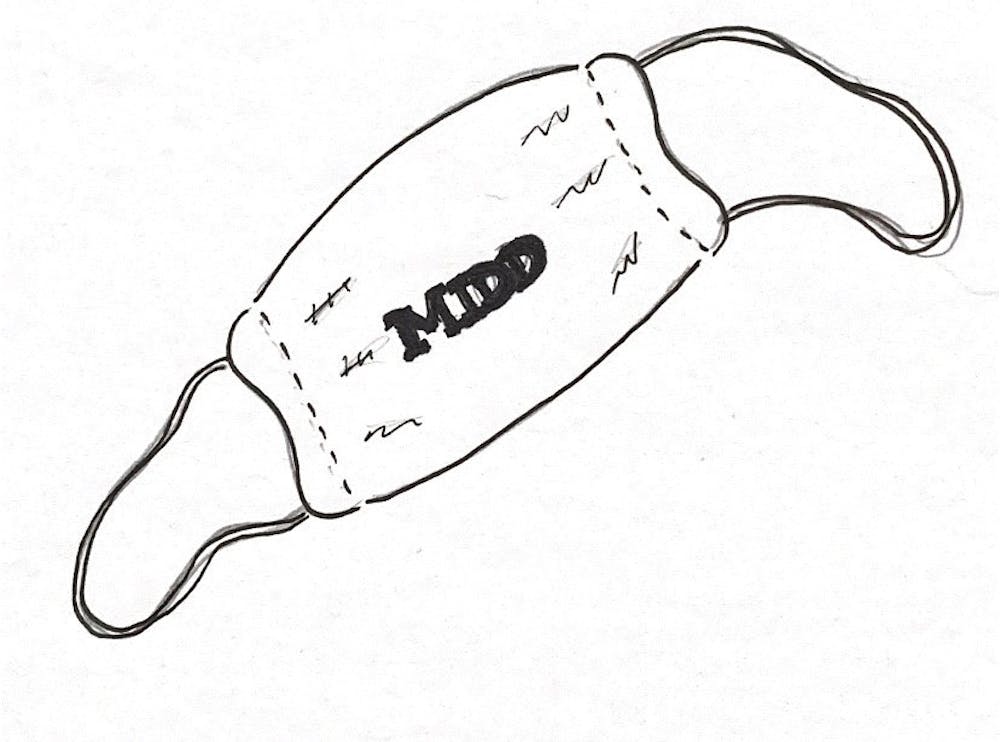
When I was in high school, I gave a speech that killed my love life.
Standing in front of hundreds of people, I told the story of how I was harassed by a middle-aged man on my flight back from Arizona; then, of how a couple of drunk guys in Boston asked my friends and me — all 14 at the time — to have some fun with them at their high-rise apartment; then, when I was on the subway and the entry-level financial analyst, dressed in a searsucker suit and reeking of cheap cologne, pointed to me and whispered to his friend, “I’d f*ck her any damn day of the week.”
Knees locked and sweat seeping through my pores, I uncovered the stories that had injected caution into my veins, the reason I could memorize license plates in seconds and, after working night shifts as a server, walked back to my shabby car with my keys between my fingers.
During my allotted eight minutes, a time that seemed both endless and ephemeral, I brought women’s rights, sexism and rape culture to the limelight.
It was a conversation that had been avoided at my conservative school, an institution that lacked a sex education program and hadn’t even bothered to teach the word “consent.”
In my case, talk was not cheap — I spent whatever social currency I had on that tense and personal speech. Tossing aside my identity as the sit-in-the-front-of-the-class-girl, I adopted a far more polarizing one: I was a liberal flight risk at a predominantly Republican high school.
It was 2017 and Trump supporters, fueled by the shocking presidential victory, emerged as a raucous mouthpiece in my school community (for context, the city’s local newspaper is called The Republican-American).
While my speech received accolades from some of my more liberal peers, others — mostly right-leaning boys — would yell at me across the hall, “Trump 2016!” or, more ‘subtly,’ “Women belong in the house!” (I wish that, at the time, I would have retorted, “Yeah, they belong in the House and the Senate,” but that slogan wouldn’t be popularized until nearly a year later).
As a product of the newfound political climate, boys I had once respected began vocalizing pro-life and anti-gun-control narratives. Trump’s Access Hollywood tape, which filmed him saying “Grab ‘em by the pussy,” normalized sexual assault jokes and garnered laughs among a particular social group. Many of those I had once thought attractive emerged as a different breed altogether, one with an allegiance to Trump and an overwhelming passion for American flag ties.
By the spring of my senior year, you couldn’t pay me to date half the boys in my high school (if we’re being honest, you probably couldn’t pay them to date me either).
My last semester of high school, somewhat marred by the shift in student expression, soon became a shadow. At Middlebury, I was surrounded by students who shared my political views. The question was no longer if you’re politically left but, rather, how left.
Because the dating pool at Midd has largely reflected my personal politics, I have seldom wondered how my past love interests will be voting this Nov. 3. By and large, even those who are not all that politically active will likely be checking Harris’s and Biden’s names off on their absentee ballots (note how I wrote Kamala before Joe).
Regardless, we should not refrain from voting because we think Maria’s countless old flames will be doing their part (by now, people are probably wondering when I’m going to run out of boys to write about).
As I graduate this spring, however, Midd’s “liberal bubble” will be more of a pipe dream than a reality. I wonder how salient political ideologies will be in my romantic relationships. As a cisgender, white woman, is it a privilege that I get to choose?
Today, politics pertains to deep-seated values rather than loose belief systems.
Because social issues and economics are nearly inextricable from one another, the “fiscally conservative but socially liberal” agenda touted by some voters is a cute way of saying, “I love Vineyard Vines and volunteering at homeless shelters.”
But in order for us to take narratives like these seriously, we must also see action. Namely, votes that prioritize the well-being and protection of others.
In the 2016 election, this was not the case. Trump won 52% of fiscally-conservative-socially-liberal voters while Clinton garnered only 40%. Interestingly, had the 12% of Trump voters gone third-party, Clinton would have won the electoral college.
As the chasm between Democrats and Republicans deepens, there must be an authentic consideration of how our party affiliations impact our social values and, by extension, our interpersonal relationships. The candidate we vote for informs the humanity with which others are treated.
While differences of opinion can spark fruitful discussion, it is increasingly important that those with whom we engage do so respectfully. Systemic racism, immigration policy and healthcare access (to name a few issues) are both emotional and politicized; the way our partners enter into conversations may give us a look into how they handle relationships.
Those who are cordial in debates, are flexible in their beliefs and consider their votes’ impact on human rights may be more qualified to help us grow as political activists and people.
MASK OFF, MIDD: Who we keep close matters.
MASK OFF, MIDD: The Politics of Romance

Comments

